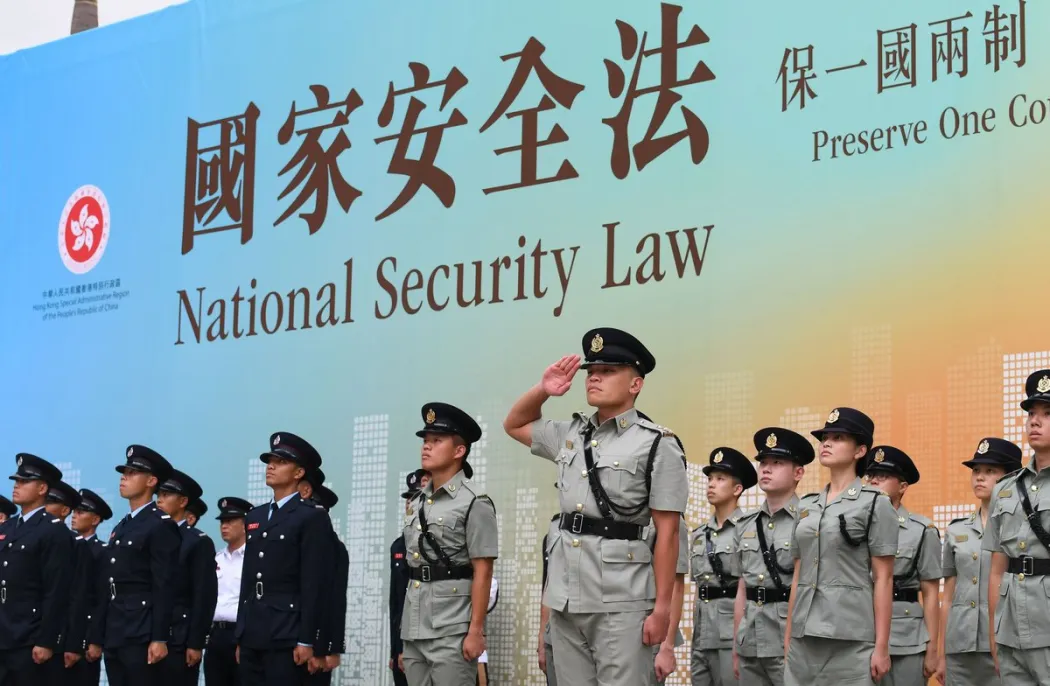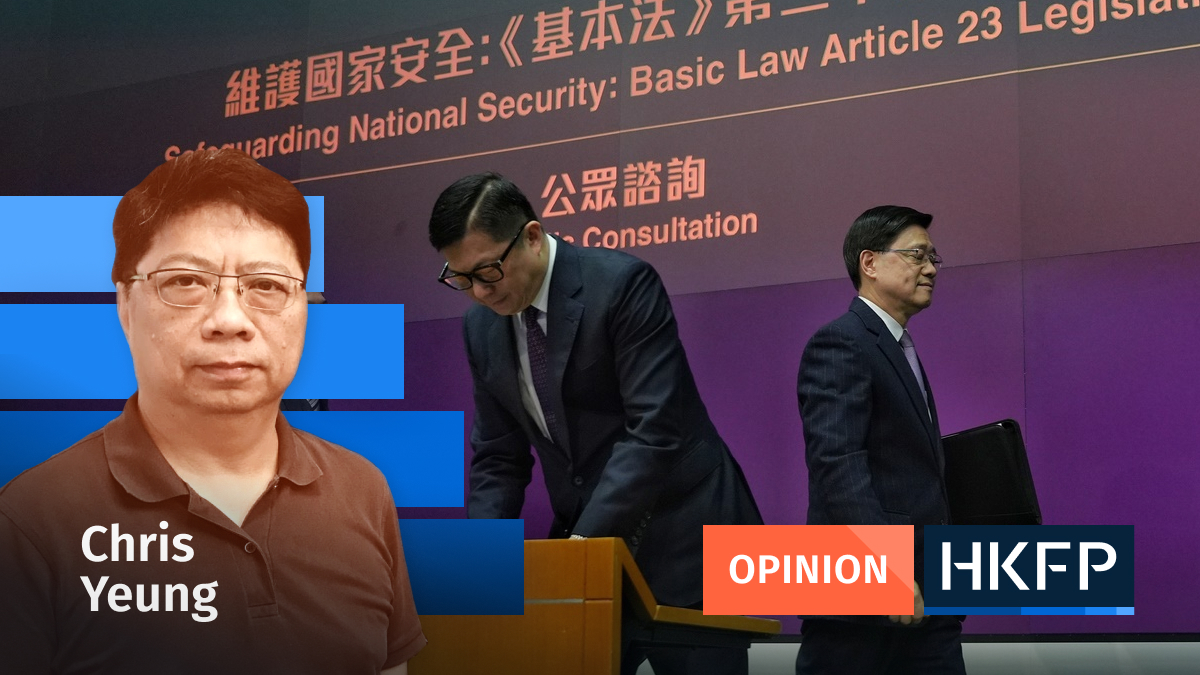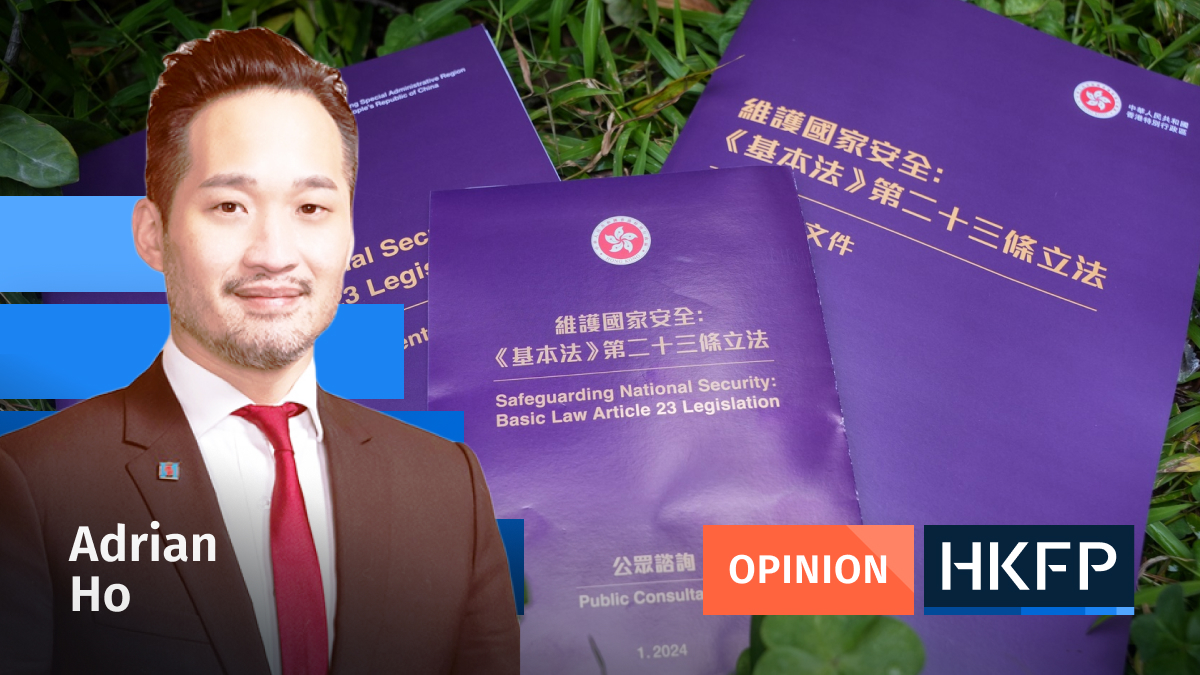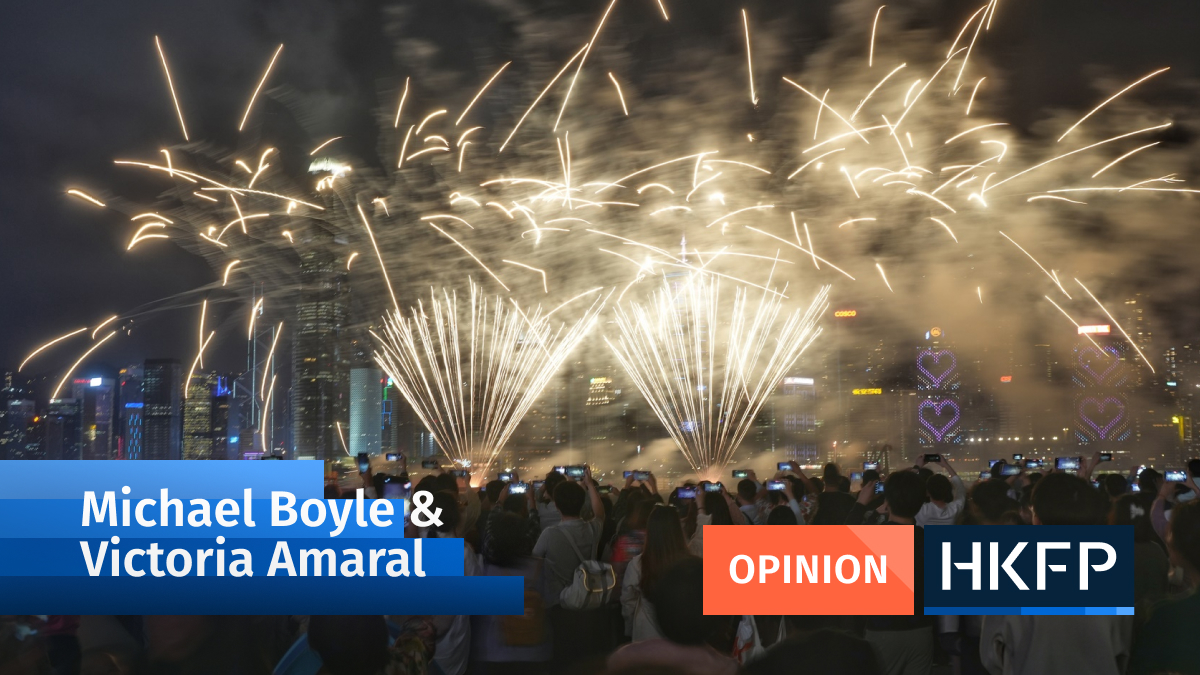Our leaders are awfully upset about Agnes Chow. Chow, if you have been abroad for a few days, was a young and charismatic protest leader when such things were still allowed.

Lately, she has been on bail after being arrested and released without charge in August 2020 under the national security law. She revealed recently that during this period she was taken across the border by national security police on a one-day tour of Shenzhen, featuring visits to a museum about the glories of modern China, and to the headquarters of a mainland megafirm.
She then penned a letter of gratitude and, apparently as a reward for this act of contrition, was given back her passport, which she had handed over to the police under her bail conditions.
She then flew to Canada and announced that she had no intention of coming back. Cue expressions of outrage, accusations of dishonesty and scorn for the rule of law, and promises that she will be “a fugitive for the rest of her life”.
The idea that Hong Kong people will be moved to horror and revulsion if somebody stays abroad to avoid a national security trial is a bit of a stretch.

Anyway, the multiple channels of condemnation has not entirely dispelled the suspicion that the national security people – as opposed to our political leaders, who have little control over them – may not have been entirely surprised or unhappy with this turn of events. Chow would perhaps be a lesser problem for them as a traumatised exile in Toronto than she would be as a popular martyr in a Hong Kong women’s prison.
The strange thing about the official response was the frequency with which the “rule of law” was mentioned. Because what happened to Chow does seem rather unusual by the standards of places where the rule of law is taken seriously.
I am puzzled by the assurance from government apologist and senior lawyer Ronny Tong that there is nothing to see here because bail conditions are routinely a matter for negotiation between defendants and policemen. I can see there may be room for some give and take when the bail is from the police and not a court, but compulsory tours outside the jurisdiction?
Those of us who fear that we may in future need the information will wonder how this actually works. Do the national security police appear suddenly at your home and whisk you off to the mainland for a bit of brain washing?
Or does the avuncular station sergeant to whom you have to report every week phrase it as an offer: “How would you feel about a free one-day trip to Shenzhen? Of course we’d have to give you your passport back for a while…”
Then there are the letters. Chow mentioned two: the one offering thanks for the police-accompanied trip, and a second expressing remorse for her student activism. Is this done on police premises and is your presence there voluntary? Is advice offered: “I don’t think ‘misguided’ quite fits the bill; let us use ‘despicable’?”
What, one wonders, was really the purpose of the whole exercise? Chief Executive John Lee’s version is that the police were trying to “show leniency”. But that hardly seems to explain the compulsory tourism, which included, according to Chow, an awful lot of photography. And what use was to be made of the letters?
Actually, I am not too concerned about the tourism aspect, as long as the tourist is allowed to return to Hong Kong at the end of it. But if we are going to boast about our enthusiasm for the rule of law then negotiated remorse, with rewards offered – like access to a passport and, in effect, an escape route – should not be on the menu.

And while this important piece of authorship was in progress, could Chow consult her lawyer? Was a lawyer present at all? Was she given the usual warning about self-incrimination?
If our leaders wish to preserve what they perceive to be Hong Kong’s international reputation as a haven of the Rule of Law, this requires more than ensuring that overseas business bods can get a fair shake in civil disputes with mainland companies. It also requires diligence in the protection of the rights of citizens accused of criminal offences.
Leaving aside the – shall we say unconventional – features of the national security law, further attention might usefully be bestowed on the matters of pre-trial publicity, the right to legal advice, and speed.
Consider Judge Andrew Chan, who recently told 16 defendants, many of whom have been in custody for approaching three years, that to deliver a verdict at the end of their trial he and his colleagues would need “three to four months”, with “no guarantees” that it would not be longer. This is carrying judicial contempt for the value of other people’s time too far. Try harder.
Type of Story: Opinion
Advocates for ideas and draws conclusions based on the interpretation of facts and data.
Support HKFP | Policies & Ethics | Error/typo? | Contact Us | Newsletter | Transparency & Annual Report | Apps
| HKFP is an impartial platform & does not necessarily share the views of opinion writers or advertisers. HKFP presents a diversity of views & regularly invites figures across the political spectrum to write for us. Press freedom is guaranteed under the Basic Law, security law, Bill of Rights and Chinese constitution. Opinion pieces aim to point out errors or defects in the government, law or policies, or aim to suggest ideas or alterations via legal means without an intention of hatred, discontent or hostility against the authorities or other communities. |
Help safeguard press freedom & keep HKFP free for all readers by supporting our team

More HKFP OPINION:
HKFP has an impartial stance, transparent funding, and balanced coverage guided by an Ethics Code and Corrections Policy.
Support press freedom & help us surpass 1,000 monthly Patrons: 100% independent, governed by an ethics code & not-for-profit.











